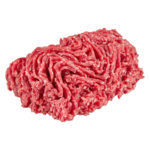Almost seven months after being nominated by President Trump, the Senate Committee on Agriculture, Nutrition and Forestry will finally conduct a public nomination hearing on Nov. 28 for Mindy Brashears to become USDA’s under secretary for food safety. The hearing on Nov. 28, might lead to a confirmation in mid-December, finally filling the position after five years since someone has been in the Under Secretary for Food Safety job. The Senate will focus on Brashears and two other Trump appointees who are up for top USDA jobs. The other two are Naomi Earp who is nominated as assistant secretary of agriculture for civil rights, and Scott Hutchins as under secretary of agriculture for research, education, and economics. Secretary of Agriculture Sonny Perdue has urged the Senate to confirm all of the USDA nominees. The Secretary of Agriculture and 12 other top jobs at USDA require both a Presidential nomination and Senate confirmation. The Senate has only confirmed seven of USDA’s top 13 posts. Observers say Senate Democrats have worked to delay confirmation of Trump appointments. The process can be slowed down if senators demand the maximum time for floor debate before votes occur. According to the Washington Post and the Partnership for Public Service, the Senate has confirmed only 377 of 702 “key” presidential appointees. Currently, 182 Trump appointees are waiting for a Senate confirmation vote. The president has not yet nominated people for 134 of the “key” jobs. @ https://www.foodsafetynews.com/2018/11/senate-finally-moves-to-fill-usdas-long-vacate-top-food-safety-post/
ruth
The Senate Committee on Agriculture, Nutrition and Forestry will finally conduct a public nomination hearing on Nov. 28 for Mindy Brashears to become USDA’
ruth
The U.S. Department of Agriculture’s Food Safety and Inspection Service (FSIS) announced that Jennie-O Turkey Store Sales, LLC, a Barron, Wisconsin recalled ~147,276 pounds of raw ground turkey products that may be associated with the illness outbreak of Salmonella Reading, reported earlier. The products were shipped to retail locations nationwide. FSIS, and its public health partners, including the Centers for Disease Control and Prevention (CDC) and the Arizona Department of Health Services, has been conducting traceback activities for a sample of Jennie-O brand ground turkey in an intact, unopened package from a case-patient’s home. The patient tested positive for Salmonella Reading and the sample from the ground turkey matches the outbreak strain. FSIS, the CDC, and state public health and agriculture partners have been working together on an illness cluster involving 164 case-patients in 35 states. Patients have reported eating different types and brands of turkey products purchased from many different stores, handling raw turkey pet food and/or raw turkey, or working with live turkeys or living with someone who handled live turkeys. @ https://www.fsis.usda.gov/wps/portal/fsis/topics/recalls-and-public-health-alerts/recall-case-archive/archive/2018/recall-112-2018-release
Jennie-O Turkey Store Sales, LLC, a Barron, Wis. establishment, is recalling approximately 91,388 pounds of raw ground turkey products that may be associated with an illness outbreak of Salmonella Reading.
ruth
The U.S. Department of Agriculture’s Food Safety and Inspection Service (FSIS) announced that Majestic Meat Company, a Salt Lake City, Utah recalled approximately 532 pounds of ground beef products that may be contaminated with E. coli O157:H7. The bulk ground beef, ground beef patties, and meatballs were produced on November 8, 2018. These items were shipped to restaurants in the state of Utah. The problem was discovered on November 15, 2018, when FSIS identified that product associated with a sample that confirmed positive for E. coli O157:H7 had been shipped. The establishment held 2 of the 3 boxes of source material associated with the sampled product, however, the third box of source material was further processed and shipped. There have been no confirmed reports of adverse reactions due to consumption of these products. @ https://www.fsis.usda.gov/wps/portal/fsis/topics/recalls-and-public-health-alerts/recall-case-archive/archive/2018/recall-113-2018-release
Majestic Meat Company, a Salt Lake City, Utah establishment, is recalling approximately 532 pounds of ground beef products that may be contaminated with E. coli O157:H7.
ruth
The Department of Agriculture’s Food Safety and Inspection Service (FSIS) announced that Swift Beef Co., Hyrum, Utah recalled approximately 99,260 pounds of raw non-intact ground beef products that may be contaminated with E. coli O157:H7. The bulk ground beef was produced on Oct. 24, 2018. These items were shipped to retail distributors for further processing and food service distributors for institutional use in locations in California, Nevada, Oregon, Utah, and Washington. The problem was discovered on November 15, 2018, when FSIS visited Swift Beef Company in response to an FSIS ground beef sample that was collected at a further processing establishment and was confirmed positive for E. coli O157:H7. FSIS confirmed that Swift Beef Company was the sole source supplier for the ground beef products. That affected product was recalled on Nov. 16. There have been no confirmed reports of adverse reactions due to consumption of these products. It’s the second-largest recall since October for Swiss Beef parent company JBS Tolleson, which recalled 6.6 million pounds of ground beef due to Salmonella in October. @ https://www.fsis.usda.gov/wps/portal/fsis/topics/recalls-and-public-health-alerts/recall-case-archive/archive/2018/recall-114-2018-release
Swift Beef Co., a Hyrum, Utah establishment, is recalling approximately 99,260 pounds of raw non-intact ground beef products that may be contaminated with E. coli O157:H7.


